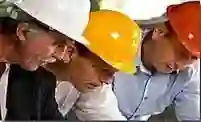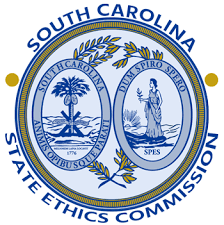South Carolina is home to a diverse range of engineering and land surveying projects. Its include from the construction of infrastructure to the careful delineation of property boundaries. With these critical responsibilities, it becomes essential for professionals in these fields to adhere to strict ethics rules and laws. This article will explore the ethics guidelines and obligations for engineers and land surveyors practicing in South Carolina, emphasizing the significance of maintaining integrity, professionalism, and accountability.
Introduction
Ethics rules and laws form the foundation of professional conduct for engineers and land surveyors. They define the moral and ethical obligations these professionals must uphold to protect the public interest and ensure the integrity of their work. In South Carolina, these rules provide guidelines that dictate how engineers and land surveyors should behave in various professional situations.
Overview of South Carolina Ethics Rules
Code of Conduct for Professional Engineers
The South Carolina Board of Registration for Professional Engineers and Surveyors has established a Code of Conduct for Professional Engineers. It serves as a set of guidelines for ethical conduct. This code outlines the principles and standards that engineers must follow to maintain professional integrity and protect the well-being of the public.
Code of Professional Practice for Land Surveyors
Similarly, the Code of Professional Practice for Land Surveyors sets forth the ethical principles and guidelines for land surveyors in South Carolina. This code emphasizes the importance of accuracy, precision, and fairness in land surveying practices, ensuring the protection of property rights and public safety.
Professional Responsibilities
Maintaining Competence and Professional Development
Engineers and land surveyors have a responsibility to stay current with advancements in their respective fields. This involves continuous learning, professional development, and acquiring new knowledge and skills. By maintaining competence, professionals can ensure that their work meets the highest standards of quality and safety.
Acting in the Best Interest of the Public
Engineers and land surveyors must prioritize the health, safety, and welfare of the public in their professional activities. They should always strive to provide services that are in the best interest of the community and avoid any actions that may compromise public safety or well-being.
Avoiding Conflicts of Interest
Professionals in these fields must act impartially and avoid conflicts of interest that could compromise their judgment or integrity. They should disclose any potential conflicts and abstain from engaging in activities that may undermine the trust and confidence placed in them by clients, employers, or the public.
Ethical Obligations
Honesty and Integrity in Professional Work
Engineers and land surveyors must demonstrate honesty and integrity in all aspects of their work. This includes accurately representing their qualifications, providing truthful information to clients and the public, and conducting themselves with transparency and professionalism.
Protecting the Health, Safety, and Welfare of the Public
The paramount duty of engineers and land surveyors is to protect the health, safety, and welfare of the public. They should prioritize these considerations over any competing interests and ensure that their work meets applicable codes, standards, and regulations.
Respecting the Rights of Clients, Colleagues, and Employers
Professionals must respect the rights and confidentiality of their clients, colleagues, and employers. They should maintain trust, confidentiality, and professionalism in their interactions and avoid any actions that may harm the interests or reputation of others.
Compliance and Disciplinary Actions
Reporting Unethical Conduct
If professionals witness unethical conduct by their peers, they have a responsibility to report it to the appropriate authorities. Reporting unethical behavior helps to maintain the integrity of the profession and protects the public from potential harm.
Investigation and Enforcement Procedures
Upon receiving a complaint or allegation of unethical conduct, the South Carolina Board of Registration for Professional Engineers and Surveyors initiates an investigation process. This includes gathering evidence, interviewing relevant parties, and evaluating the merits of the case to determine whether a violation has occurred.
Possible Penalties and Consequences
Violations of ethics rules and laws can result in disciplinary actions against engineers and land surveyors. These may include formal reprimands, fines, probation, suspension, or revocation of professional licenses. The severity of the penalties depends on the nature and extent of the violation.
Resources for Ethics Guidance
To assist engineers and land surveyors in navigating ethical challenges, several resources are available in South Carolina. The South Carolina Board of Registration for Professional Engineers and Surveyors provides guidance on ethics-related matters. Professional associations and organizations also offer resources, such as workshops, seminars, and publications. It help professionals stay updated on ethical practices. Professionals must take the South Carolina Rules and Laws for Engineers and Land Surveyors to earn 3 PDH Hours/Credit. It will help them to renew their PE license.
Conclusion
Adhering to ethics rules and laws is crucial for engineers and land surveyors in South Carolina. By maintaining professional integrity and accountability, these professionals ensure public safety, foster trust, and contribute to the overall development and progress of the state. Upholding high ethical standards is not only a legal requirement. But also a moral obligation that strengthens the reputation and credibility of the engineering and land surveying professions.
FAQs
Q: What happens if an engineer or land surveyor violates the ethics rules?
A: Violations of ethics rules can lead to disciplinary actions, including reprimands, fines, probation, or even the suspension or revocation of professional licenses.
Q: Can ethics violations lead to legal consequences?
A: Yes, in some cases, ethics violations can have legal implications, especially if they result in harm to the public or violate specific laws or regulations.
Q: How often are ethics complaints filed against engineers and land surveyors?
A: The frequency of ethics complaints varies. But the filing of complaints is a crucial mechanism for maintaining professional standards and ensuring accountability.
Q: Can ethics training help professionals in these fields?
A: Yes, ethics training can provide professionals with the necessary knowledge and guidance. It’s navigate ethical challenges and make informed decisions in their practice.
Q: Are there any ongoing efforts to update the ethics rules in South Carolina?
A: Ethics rules are periodically reviewed and updated to address emerging ethical issues and reflect changes in the profession. The relevant authorities regularly evaluate and revise these rules as needed.


